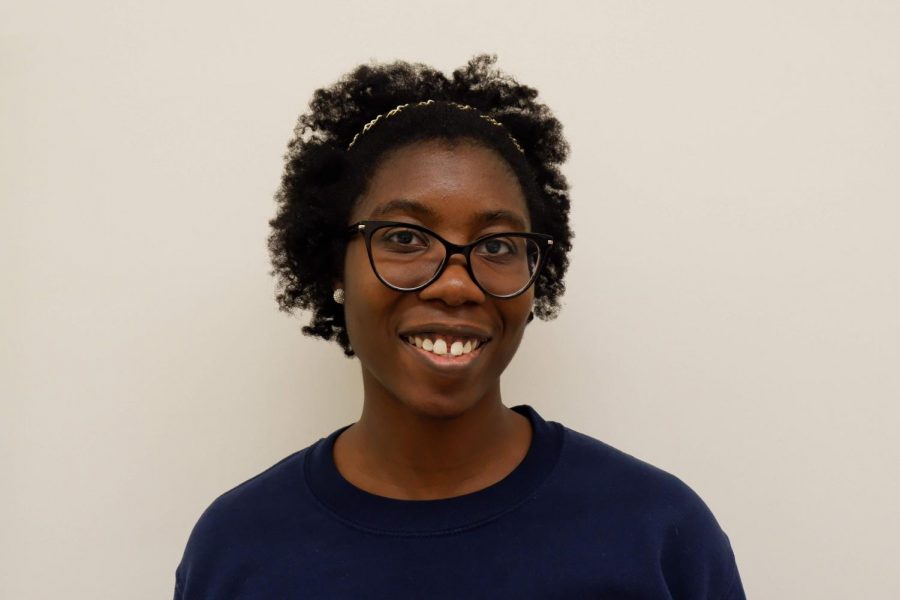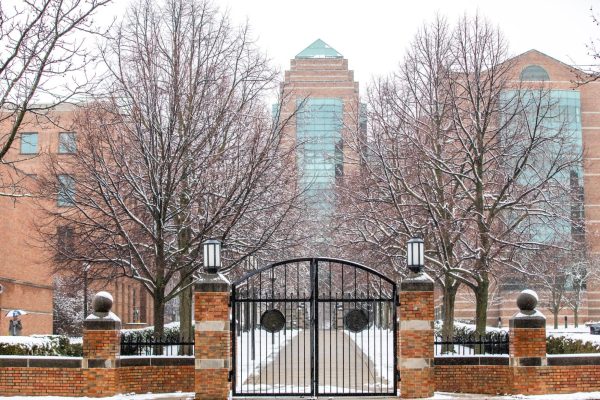Fulbright fellowship supports students’ international work
Cassandra Osei, one of the winners of the Fulbright-Hays fellowship, will conduct field work for her research in Brazil
Nov 15, 2018
Two doctoral students in LAS were awarded the Fulbright-Hays Doctoral Dissertation Research Abroad Fellowship, which funds 100 doctoral students to do field work in countries that use languages not commonly taught in the United States.
When Cassandra Osei, doctoral student in LAS, got the acceptance email to go to Brazil, she said she couldn’t believe it.
Osei is studying Afro-Latina involvement in black and feminist movements during the mid-20th century in Southern and Southeastern Brazil. She said these particular people are severely underrepresented in Brazil’s history.
Brazil has a history of racial mixing and was understood as a country without formal segregation or racial violence. However, it was also the last country in the Americas to abolish slavery, and the lingering stigma still affects black people.
Her work will focus on the most urbanized and fastest industrializing regions in the country. Osei has already met with the descendants of black social clubs, which are organizations with deep roots in Brazil where black people came together to fight racism and gather socially, as part of her research.
Get The Daily Illini in your inbox!
“Perhaps one of the best things about my research is it dialogues very well with the concerns that Americans have about their society, the changes being undergone in our society,” Osei said.
Osei said there are racial minorities in the United States who may be underrepresented but are still doing meaningful work in their communities, similar to the Afro-Latinas in Brazil during the 20th century.
Billy Keniston, doctoral student in LAS and a recipient of the fellowship, is studying the social movements and political activism during the apartheid period in South Africa.
During the apartheid, black people had limited power to vote, less social mobility and were targets for random arrests.
Keniston said the system of apartheid has been declared a crime against humanity, but the white people in power held onto it by saying if they give up their control of the country, they will never have power again.
“The politicians in America right now are basically saying the same thing. We have our first black president ever and after this we have this incredibly racist white government,” he said.
The majority of Keniston’s research takes place in South Africa, including countries such as Angola and Botswana. Currently, Keniston is in the United Kingdom to follow a South African couple who left illegally and traveled to Botswana before settling in England. In addition, he will study Ruth First, a famous South African journalist, and Jeanne Curtis, an anti-apartheid activist.
“So basically I think they’re recreating apartheid right now. I think it’s very important that we understand what apartheid really was and what kind of crimes it committed because we’re going through very similar problems,” Keniston said.
Correction: A previous version of the article misquoted Keniston in his characterization of the current government and did not provide sufficient context for the quote. The article also misstated the nature of Keniston’s research in Angola and Botswana. The Daily Illini regrets these errors.






